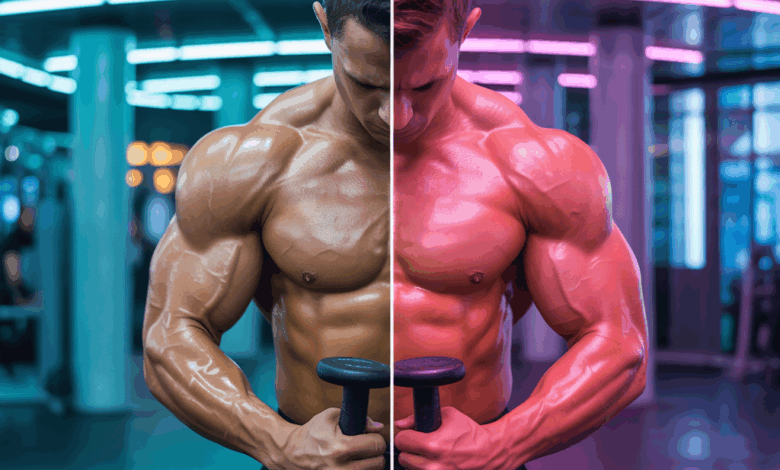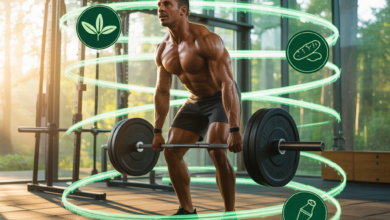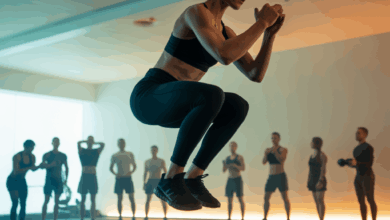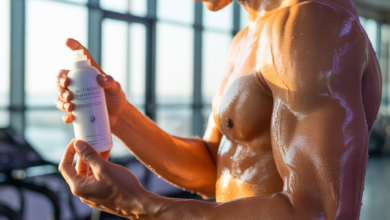Why do bicep curls hurt my neck? 9 Reasons and How to Fix It

Ever been mid-set, feeling great, then suddenly your neck tenses up and a sharp tug ruins your groove? You’re not alone. Asking “why do bicep curls hurt my neck” is one of the most common questions I hear from gym-goers who want strong arms — without paying for it with neck pain. Let’s break down the real causes, quick fixes, and better variations so you can keep building muscle safely.
Why do bicep curls hurt my neck?
Neck pain during bicep curls usually comes down to form breakdown, compensation from upper traps, or underlying mobility issues. When you lift, if other muscles take over (shrugging, leaning, or neck flexion), the load moves away from the biceps and onto the neck and shoulders. Below are the common culprits and practical solutions you can start using today.
Common causes and how to fix them
Poor form and “cheating” momentum
Leaning back or swinging the torso puts stress on your cervical spine and traps. Replace momentum with controlled reps: slow the eccentric (lowering) phase to 2–3 seconds and keep your torso stable. Use lighter weight if you can’t control the motion.
Shoulder elevation (shrugging) during curls
If you see your shoulders creeping toward your ears, your upper traps are doing the work. Cue “shoulders down and back” before every rep. You can also try seated curls with back support to eliminate the ability to shrug.
Neck thrusting or looking up
Some people tilt their head forward or look up to “watch” the bar path, which strains neck muscles. Keep your neck neutral — imagine a string pulling the top of your head toward the ceiling — and fix your gaze on a point straight ahead.
Weak shoulder stabilizers and core
A weak rotator cuff or core lets the shoulder and spine tilt under load. Strengthen shoulder stabilizers with face pulls, band external rotations, and plank variations. Improved stability reduces shoulder shrugging and neck compensation.
Tight upper traps and poor mobility
Tight traps and limited thoracic mobility can force the neck into awkward positions. Incorporate foam rolling for the upper back, gentle neck stretches, and thoracic extension drills to free up movement.
Using the wrong grip or wrist position
An overly supinated grip or wrist strain can change elbow mechanics, causing you to adjust your posture and stress the neck. Try a neutral grip (hammer curls) or use dumbbells instead of a barbell to let your wrists find a natural position.
Too heavy, too soon
Dropping in excessive weight encourages cheating and compensation. Progress gradually with a weight that allows 8–12 controlled reps. You’ll get better muscle growth without pain.
Underlying nerve or cervical issues
If you experience sharp, radiating pain, numbness, or weakness beyond simple soreness, you may have a cervical nerve irritation or disc problem. Stop the exercise and see a medical professional for an evaluation.
Breath-holding and poor breathing technique
Bracing by holding your breath can increase neck/jaw tension. Exhale on the concentric (curl up) and inhale as you lower the weight to maintain stable intra-abdominal pressure without neck strain.
Practical fitness tips to stop neck pain during curls
- Warm up: 5–10 minutes of dynamic shoulder and neck mobility before training.
- Use cues: “Shoulders down,” “chest up,” and “head neutral.”
- Try seated preacher curls to isolate the biceps and eliminate torso movement.
- Switch to unilateral movements (single-arm dumbbell curls) to prevent compensations.
- Lower volume on heavy sets; focus on tempo and mind-muscle connection.
- Include posterior chain and upper-back work to balance posture (rows, face pulls).
Workout variations that reduce neck strain
Not all curls are created equal. Here are safer options that keep the load on the biceps and off your neck:
- Seated dumbbell curls (back supported)
- Concentration curls (elbow braced on thigh)
- Incline dumbbell curls (reduces shoulder involvement)
- Hammer curls (neutral grip for wrist comfort)
- Cable curls with straight bar (constant tension, easier posture)
Healthy lifestyle habits to prevent recurrence
Pain during lifts is often magnified by daily posture and recovery habits. Try these long-term strategies:
- Fix desk posture: monitor at eye level, shoulders relaxed — see our wellness tips page for posture routines.
- Sleep ergonomics: use a pillow that supports your neck’s neutral curve.
- Nutrition: support recovery with protein and anti-inflammatory foods — check our nutrition guides for meal ideas.
- Regular mobility work and foam rolling for upper back and neck.
- See a physical therapist for persistent or worsening pain.
Real-world example: A client case study
One client kept feeling a tight knot above the shoulder during curls. We switched him to seated incline curls, reduced weight by 25%, and added two weekly face-pull sets. Within three weeks his neck tension disappeared and his biceps growth continued. Small changes in setup and accessory work made the difference.
Frequently Asked Questions
Unlikely if you correct form and reduce load. However, repeated poor technique or ignoring sharp, radiating pain can aggravate underlying neck issues. Stop the exercise and consult a professional if symptoms persist.
Seated dumbbell curls with back support, preacher curls, and concentration curls are excellent choices because they limit torso and shoulder involvement that often causes neck strain.
If you experience numbness, tingling, weakness in the arm, or sharp pain that doesn’t improve with rest and modified form, get a professional assessment to rule out nerve compression or other serious issues.
Conclusion
If you’ve been asking “why do bicep curls hurt my neck,” the answer usually lies in technique, compensation, or mobility — rarely the biceps themselves. Start with lighter weights, tighten your form cues, try supported variations, and address posture and mobility. If pain remains, seek a professional evaluation. Ready to fix your form and keep building arms without the neck ache? Check our workout routines for biceps-friendly plans and try the seated curl template this week.
Do this one thing today: next time you curl, slow the lowering phase and keep your shoulders down. Notice how much less your neck complains — then come back and tell me how it went.





